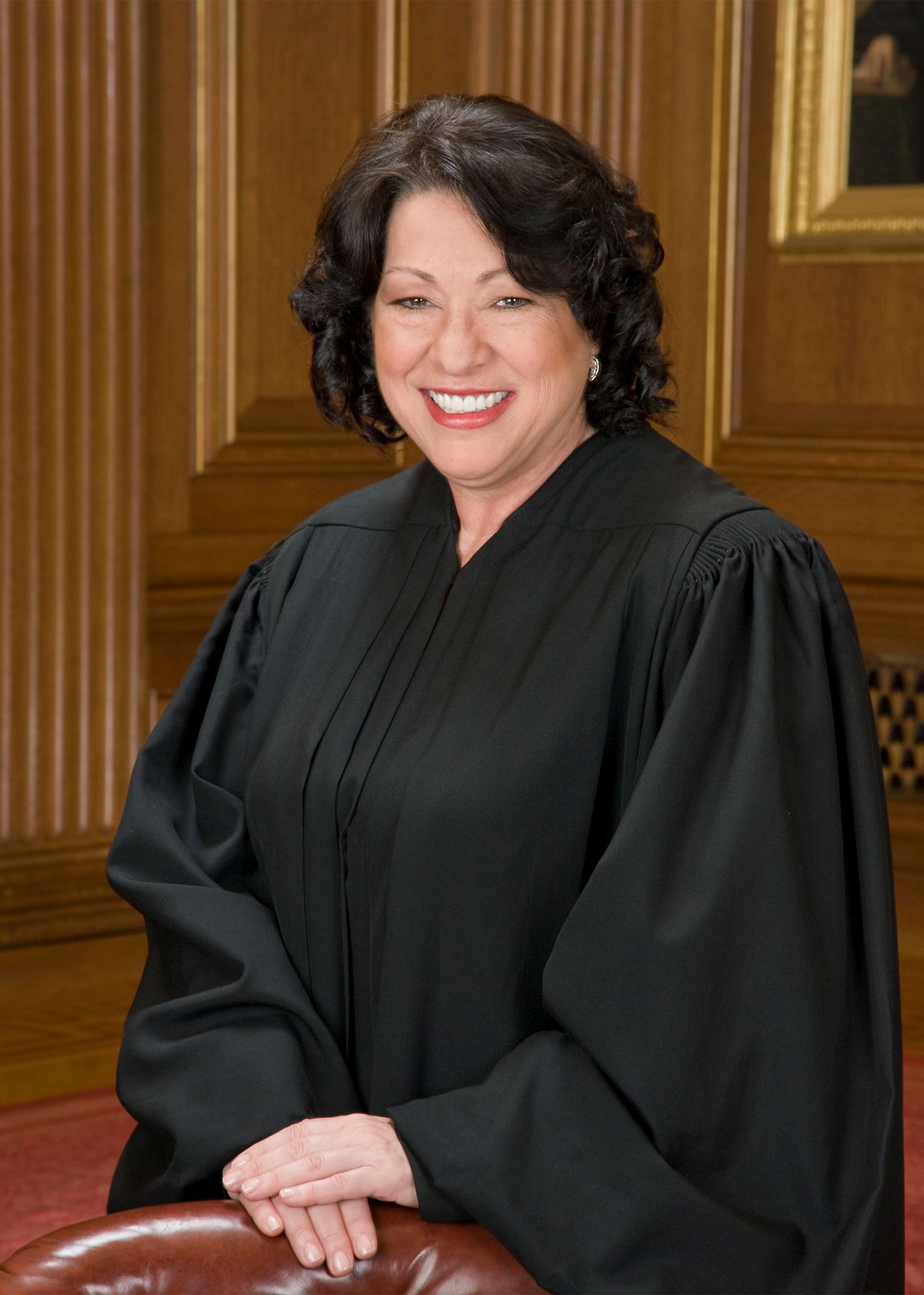
Sonia Sotomayor to receive 2024 Radcliffe Medal
Associate justice of U.S. Supreme Court honored for her work as a fearless and compassionate jurist
Sonia Sotomayor, an associate justice of the Supreme Court of the United States, will receive the Radcliffe Medal on May 24, the Harvard Radcliffe Institute announced on Thursday.
Each year during Harvard University’s Commencement Week, Radcliffe awards its highest honor to an individual who embodies its commitment to excellence and impact. The Radcliffe Medal was first awarded to Lena Horne in 1987. Past recipients include Madeleine Albright, Hillary Rodham Clinton, Melinda French Gates, Ruth Bader Ginsburg, Dolores Huerta, Sherrilyn Ifill, Toni Morrison, Sandra Day O’Connor, Gloria Steinem, Ophelia Dahl, and Janet Yellen.
“I can think of no more deserving a recipient of our 2024 Radcliffe Medal than Justice Sonia Sotomayor,” said Tomiko Brown-Nagin, dean of Radcliffe Institute for Advanced Study, Daniel P.S. Paul Professor of Constitutional Law at Harvard Law School, and a professor of history in the Harvard Faculty of Arts and Sciences. “Her brilliance, indefatigable work ethic, and steadfast determination led her to our nation’s highest court, where she has been a fearless and insightful interpreter of our Constitution and laws. At a time when our nation is wrestling with divisive issues, she has demonstrated the galvanizing power of dissent to inform ongoing debates and inspire further action.”
“At a time when our nation is wrestling with divisive issues, she has demonstrated the galvanizing power of dissent to inform ongoing debates and inspire further action.”
Tomiko Brown-Nagin, dean of Radcliffe Institute for Advanced Study
Sotomayor has embodied and advanced equality and opportunity throughout her long career as a litigator and pathbreaking judge.
Sonia Sotomayor was born to Celina Baez, a nurse, and Juan Sotomayor, a manual laborer with a third-grade education who spoke no English. Both had moved to New York from Puerto Rico during World War II, and Sotomayor was born and raised in the Bronx. Her family lived in public housing, and her father died when she was 9. After his death, Sotomayor’s mother — a fierce believer in the value of education — began working six days a week to support her daughter and son and to cover the costs of sending both to private Catholic schools. A diligent student, Sotomayor graduated as valedictorian, earned a scholarship to Princeton University — graduating with top honors again — and received her J.D. from Yale Law School, where she was an editor of the Yale Law Journal.
But Sotomayor’s modest origins are not all that shaped her. Her work ethic and career choices provided another form of education, giving her extensive on-the-ground experience as a lawyer and judge. By the time she was nominated to the United States Supreme Court in 2009 by President Barack Obama, Sotomayor brought with her more federal judicial experience than any other U.S. Supreme Court justice in a century.
Sotomayor’s career began when the renowned Manhattan district attorney Robert Morgenthau tapped her to join his office when she was 25 years old. A skilled prosecutor, she entered private practice focused on commercial litigation, rising from associate to partner in the 1980s. President George H.W. Bush nominated her to the U.S. District Court for the Southern District of New York in 1991, where she made headlines for “saving” Major League Baseball from a strike in 1995. In 1997, President Bill Clinton’s selection elevated her to the U.S. Court of Appeals for the Second Circuit.
As Obama later observed, “It’s a measure of her qualities and her qualifications that Judge Sotomayor was nominated to the U.S. District Court by a Republican president … and promoted to the federal court of appeals by a Democrat.”
In 2009, Obama nominated her to the U.S. Supreme Court, and when the Senate confirmed her nomination, she became the first Hispanic and the third woman to reach such judicial heights. One of her first major opinions was a dissent in Berghuis v. Thompkins, in which she called out the majority for eroding criminal defendants’ constitutional right to remain silent and ignoring the coercive realities of the criminal justice system. In the ensuing years, she strengthened her reputation as a defender of the voiceless and marginalized in society, and she has demonstrated the force of vigorous dissent. Later dissents in Schuette v. BAMN, Utah v. Strieff, and Trump v. Hawaii forced the Court to reckon with its present and historical failures to ensure equality under the law and safeguard rights.
Over nearly 15 years on the nation’s highest court, Sotomayor has weighed the impact of cases on people from all backgrounds and has openly embraced the idea that lived experience can enhance judicial decision-making.
“I strive never to forget the real-world consequences of my decisions on individuals, businesses, and government,” she said upon her nomination to the Supreme Court. Since then, she has fought tirelessly to advance equality, expose systemic injustice, and hold those with power to account.
“I am an ordinary person who has been blessed with extraordinary opportunities and experiences,” Sotomayor has written.
Visit the Radcliffe website to register for the May 24 event.




